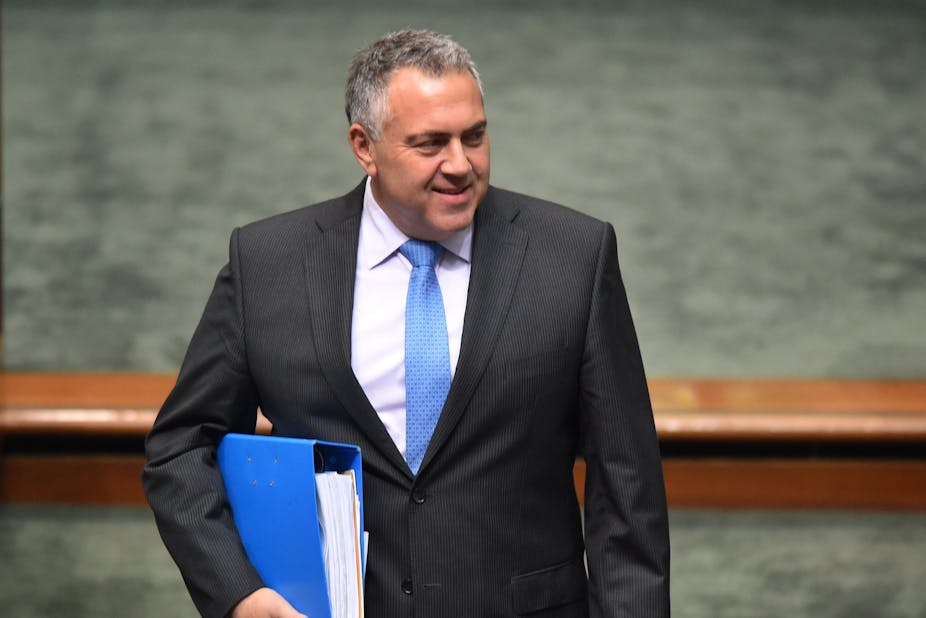“Lower, simpler, fairer” is the theme of the tax issues paper released by the government today. Though calling for a “Re:think” of tax, the paper leaves many unanswered questions over how to achieve any of these goals, and the trade-offs that will be needed to achieve all three.
The paper, which was expected to be released last year, is set out as yet another review of the policy settings of the tax system. However most of the issues have been raised in a range of policy reviews over the last five years. Given that the report on Australia’s Future Tax System (the Henry Review) was released less than five years ago, and was followed by the Tax Forum in 2011, it does not seem unreasonable for the public to be asking for some concrete proposals, not just more questions for consultation.
This review does not have the same limitations as those imposed on the Henry Review, which was specifically precluded from discussing the GST, tax-free superannuation payments for persons over 60 and the aspirational tax rates, and it is set within the context of the Review of the Federation that is also underway.
Prior to the issue of Re:think, the Treasury identified the key issues for reform. The first issue listed was the tax mix, which opens up for discussion the base and rate of the GST. This paper does invite discussion on the GST, but with the caveat that proposals will only be progressed “if there is a broad political consensus for change, including agreement by all state and territory governments”.
A wider discussion
Most of the issues that have been raised in recent discussion are placed in context in Re:think. The focus on lower personal taxes is linked to the modelling in the Intergenerational Report showing that much of the increase in personal tax revenue in the future is likely to be from bracket creep: as wages increase, personal taxes will also increase unless tax thresholds are also raised.
The paper does make the point that there are now few personal tax offsets available through the tax system as most have been moved to the transfer system. The trade-off is that although our personal tax and transfer system has become one of the most progressive in the OECD, this may lead to work disincentives and tax minimisation.
Re:think does raise the distortions caused by different taxation treatment for fringe benefits and a range of investments including concessional superannuation contributions, negative gearing and the dividend imputation system.
The Financial System Inquiry has recommended that:
“The Tax White Paper should consider aligning the earnings tax rate across the accumulation and retirement phases and options to better target superannuation tax concessions to the objectives of the superannuation system.”
The tax issues paper does concede that there are distortions and planning opportunities in the superannuation system that distort savings behaviour and indicates that the findings of the Murray Inquiry will be considered; but again there are no recommendations.
The paper suggests that quarantining of negative-gearing deductions would be consistent with the treatment of other non-commercial losses. Losses from certain non-commercial business ventures are not allowed as an immediate tax deduction but deferred until the business becomes profitable, whereas the financing cost of purchasing investments is allowed as a deduction even where this creates a loss.
The treatment of capital gains is also placed on the table. Re:think asks whether the CGT discount is still appropriate and, in the context of investments by non-resident shareholders in Australian companies, suggests capital gains should be treated like ordinary income.
Corporate tax reform options include lower tax rates, in the interests of improved competitiveness in the open economy, as well as other options, but once again the report is going down a well-trodden path. Business concerns over the timing of deductions for company losses resulted in changes to the legislation from the 2012-13 tax year, but the changes were repealed with effect from September 2014 as the measure was linked to the mining tax when it was introduced.
The interaction of personal and business systems is discussed, in particular through the use of business structures by small businesses. The grounds for reform here are the compliance costs, which disproportionately affect small business. Re:think suggests that “flow through entities”, in which the investors are taxed directly on the business income, could decrease complexity. It also suggests that the system of small business concessions is too complex and unnecessary.
Overall, the Re:think discussion paper is disappointing. Although the government has recognised the key issues, it is waiting to put forward any proposals for reform. The answers to the questions that are asked can be easily accessed by reviewing the archived copies of submissions to previous reform proposals.
Reform is an incremental process, but at some stage a government has to take a stand.

